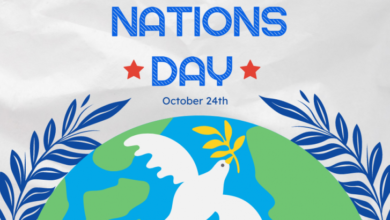Prioritising Breastfeeding Through Sustainable Support Systems

Every year from 1st to 7th August, the world celebrates World Breastfeeding Week (WBW), a campaign championed by WHO, UNICEF, national governments, and civil society partners in over 120 countries. Since its launch in 1992, WBW has served as a platform to raise awareness, spark policy change, and strengthen community support for breastfeeding, recognizing it as one of the most powerful foundations for lifelong health, development, and equity.
This year’s global theme is:
“Invest in breastfeeding, invest in the future.”
It is a timely reminder that breastfeeding is not simply a private act between mother and child, but a public health investment with far-reaching benefits for families, communities, and societies at large.
Why Investment in Breastfeeding Matters
According to WHO and UNICEF, improving breastfeeding rates could save over 820,000 children’s lives every year. Beyond survival, breastfeeding contributes to stronger health, higher IQ, better school performance, and greater productivity in adulthood, making it a building block for national development.
And yet, millions of mothers still encounter barriers such as:
- Inadequate maternity leave and weak workplace protections
- Lack of skilled healthcare support, especially after leaving maternity wards
- Cultural stigma and misconceptions, particularly around public breastfeeding
- Absence of safe lactation spaces in workplaces and public facilities
- Minimal community involvement, leaving mothers isolated
These systemic gaps mean breastfeeding often feels like a mother’s burden, when in fact, it is a shared responsibility that requires societal investment.
The Faces of Breastfeeding Discrimination
Sadly, breastfeeding discrimination is still widespread. It often takes the form of:
- Denying nursing mothers pumping breaks, even when they are in pain and leaking milk
- Firing or punishing employees for requesting breastfeeding accommodations
- Forcing women to pump milk in unsafe, non-private spaces
- Mocking mothers with degrading comments, such as comparing them to animals
Even public breastfeeding remains controversial. A 2024 survey revealed that 1 in 3 mothers reported being shamed for breastfeeding in public. While countries like Norway and Sweden openly normalize it, in places such as France and Wales, many women still fear judgment or embarrassment.
Benefits of Breastfeeding
The science is clear: breastfeeding is one of the best investments in health and development.
For the Baby
- Complete nutrition tailored to the baby’s growth needs
- Stronger immunity against diarrhoea, pneumonia, ear infections, and more
- Better brain development, memory, and motor skills
- Lower risks of obesity, asthma, diabetes, and childhood cancers
- Gentler digestion compared to formula
For the Mother
- Faster recovery after childbirth through oxytocin release
- Reduced risk of breast and ovarian cancer, heart disease, and diabetes
- Gradual weight loss through the extra calories burned in milk production
- Deeper emotional bonding with the baby, lowering risks of postpartum depression
The Way Forward
The future of breastfeeding lies not only in individual awareness, but in collective responsibility. To truly prioritise breastfeeding, we must:
-
Strengthen Policies and Laws
-
Governments should extend paid maternity leave, enforce breastfeeding rights, and regulate aggressive formula marketing in line with the International Code of Marketing of Breast-Milk Substitutes.
-
-
Transform Workplaces
-
Employers must create lactation-friendly environments; providing flexible breaks, safe spaces, and protection from discrimination for nursing mothers.
-
-
Equip Health Systems
-
Health workers should be trained to provide consistent, respectful, and evidence-based lactation support, from antenatal visits through postnatal care.
-
-
Engage Families and Communities
-
Fathers, relatives, and community leaders must be active champions of breastfeeding, creating supportive social environments free of stigma and shame.
-
-
Sustain Investments
-
Long-term funding for maternal and child health must prioritise breastfeeding as a high-return intervention for healthier societies and stronger economies.
-
Conclusion
Breastfeeding is not simply a mother’s choice, it is a public health necessity and a societal responsibility. When women are left without support, the cost is borne not just by families, but by entire nations.
This World Breastfeeding Week 2025, the message is clear:
“Invest in breastfeeding, invest in the future.”
And the pathway to that future is equally clear:
“Prioritise breastfeeding through sustainable support systems.”
By turning investments into practical, lasting structures of support in hospitals, workplaces, homes, and communities; we can ensure that every mother is empowered, every baby is nourished, and every society is strengthened.





